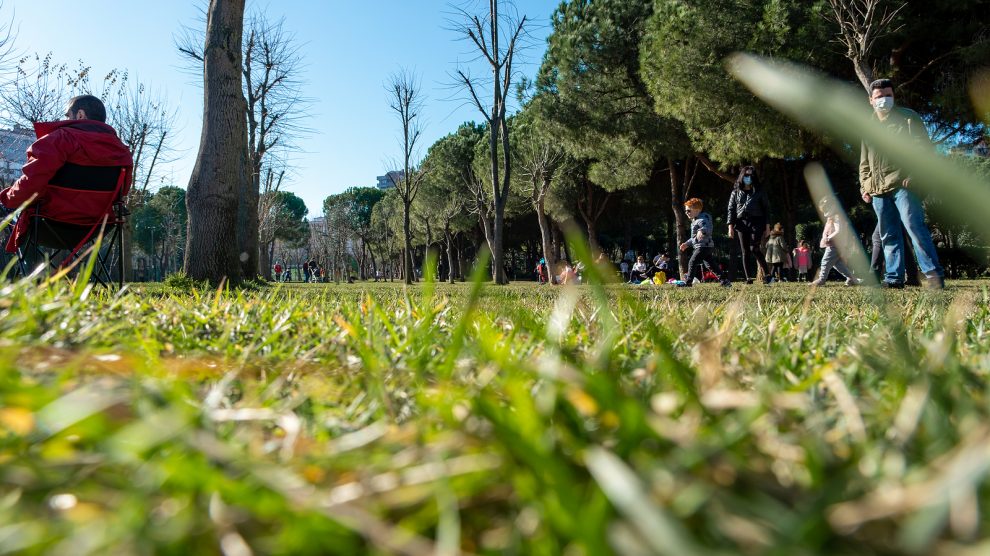Writing on the eve of the Covid-19 pandemic, Nobel Prize-winning novelist Orhan Pamuk quipped that my fellow Istanbulites treat their streets as if they were their own living rooms. But suddenly sardined indoors, we were forced to rethink and reimagine our relationship with the outside world, prompting the question of how we make our communities more resilient and sustainable.
The European Commission’s European Green City awards next month will be a timely barometer of our thinking around what it means to be sustainable in a post-pandemic world. The 16 finalists, two of them from Turkey, are vying for the top prize.
We know that increasing car-free zones and cycling paths is no longer enough. Taking on the green mantle will require direct, sometimes uncomfortable, discussions with the private sector to make sure that it leads by example instead of just paying lip service to noble sustainability goals.
- Freshwater fish populations are collapsing, CEE is no exception
- Pollution in the Western Balkans is threatening the region’s water supply
- How Uzbekistan’s cotton industry cleaned up its act
For both large and small corporations, this means getting to grips with the true potential of the green revolution. Over half a century ago, the New York City developer and philanthropist James Felt said that the smallest patch of green space is as important to the value of real estate as streets and sewers. He was right – and not only because it arrests the monotony of asphalt.
Green, sustainable innovation is a successful growth strategy for businesses because it pushes companies to create new and more efficient products. Investors and consumers are increasingly looking to make investments with an environmental impact: those companies that do not align themselves will lose out. Reaping inspiration from a fly-fishing visit to Alaska, Blackrock CEO Larry Fink recently warned that companies not taking sustainability seriously will find it difficult to source financing in the future.
Research carried out last year shows that a growing army of conscious consumers is adopting a raft of measures to shop and live more sustainably. An increasing number of people of all ages – about one in five of them – are making more sustainable choices in their transport and energy consumption. The message is a simple but powerful one: sustainable businesses attract a loyal consumer base.
The private sector has been late to the game, but it is starting to grasp the gravity of the situation. Besides the obvious physical risks such as the operational impacts of extreme weather events, companies are exposed to transition risks linked to society’s response to climate change. Companies must stay ahead of the curve and build resilience, not least by boosting investments in research and development.
Driving forward the sustainability agenda
As discussions about environmental impact among governments and leading multinationals pick up steam, we should focus more attention to how smaller businesses can drive forward the sustainability agenda. At Aradolu, one of Turkey’s leading healthy living e-commerce platforms, we believe that there is a clear business case for investing in sustainability – this relates to our products and business operations as well as how we engage with our suppliers and customers. The question then is not whether business should act, but how.
First, sustainable strategies must be led by boards and CEOs – decision-making needs to be driven from the very top of an organisation. Since its founding, Aradolu has embedded sustainability policies into its broader business strategy and has grown its platform to sell 175 brands and 2000 products that are all naturally, organically and sustainably produced. This has helped generate more awareness of our environmental impact and has improved our assessment of what we can do to confront it. It has also helped us succeed with an environmentally-minded consumer base.
Second, cross-sectoral partnerships are crucial. Private companies, public institutions and civil society actors are most effective when they pool their resources. In Turkey, we are seeing how public-private partnerships can, when used correctly, improve biodiversity and climate protection. At Aradolu, we work with likeminded NGOs such as TEMA, the Turkish Foundation for Combating Soil Erosion. Together, we have planted trees across Anatolia.
Engagement with local communities
Third, companies should engage with the communities they operate in. Local communities are partners in achieving human security and resilience. Working at a local level to identify specific needs, capture local knowledge and generate community solutions, will improve relationships with suppliers and producers.
At Aradolu, we work with TIDER, Turkey’s first food bank, to supply food boxes to families most affected by the pandemic. So far, we have donated 1,000 boxes to families in the Esenler neighborhood of Istanbul, where Aradolu is based. The closer we work with our neighbours, the better our company’s standing is. We cannot confront environmental issues without addressing human suffering.
Finally, we must also act as individuals where possible. Just like Larry Fink’s Alaska excursion, I also draw my inspiration from the outdoors, albeit closer to home: my grandmother’s luscious green garden.
In my capacity as caretaker, I recently introduced an automatic irrigation system. In doing so, I saved half a ton of water a day and created the option to use rainwater, which has saved a lot of money. Sometimes even small, seemingly trivial actions, just steps away from our actual living room, can help create a more sustainable future.
Unlike many news and information platforms, Emerging Europe is free to read, and always will be. There is no paywall here. We are independent, not affiliated with nor representing any political party or business organisation. We want the very best for emerging Europe, nothing more, nothing less. Your support will help us continue to spread the word about this amazing region.
You can contribute here. Thank you.








[…] Source link […]